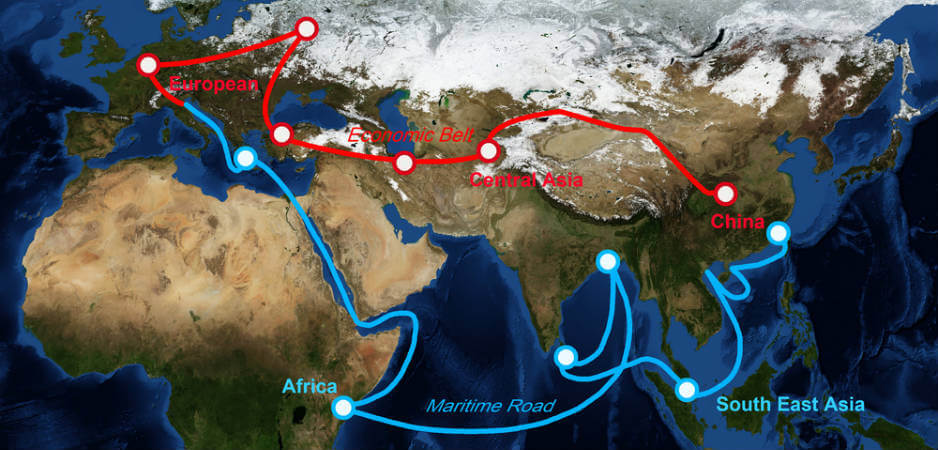 (TibetanReview.net, Oct27, 2017) – China has asked India on Oct 26 to shed its objections and join its globally ambitious ‘Belt and road initiative (BRI)’ while expressing willingness to engage in “in-depth communication” to address its concerns. India is not only seen as perceiving the BRI as a tool of China to gain global hegemony which could very well be at its expense, but also objects to a part of it, the China-Pakistan Economic Corridor (CPEC), which passes through a portion of the Indian territory of Kashmir occupied by Pakistan.
(TibetanReview.net, Oct27, 2017) – China has asked India on Oct 26 to shed its objections and join its globally ambitious ‘Belt and road initiative (BRI)’ while expressing willingness to engage in “in-depth communication” to address its concerns. India is not only seen as perceiving the BRI as a tool of China to gain global hegemony which could very well be at its expense, but also objects to a part of it, the China-Pakistan Economic Corridor (CPEC), which passes through a portion of the Indian territory of Kashmir occupied by Pakistan.
“We welcome other countries including India to participate in the Belt and Road Initiative (BRI) on the basis of voluntarism,” India’s PTI news agency Oct 26 quoted Chinese Foreign Ministry spokesman Geng Shuang as saying at a media briefing in Beijing. He has said the CPEC project will not change China’s stand on peaceful resolution of Kashmir conflict.
“The initiative will not affect China’s position on relevant issues and our position on relevant initiatives will not be changed,” he was quoted as saying.
The BRI includes the USD 50 billion CPEC. Chinese firms have invested a total of USD 560 billion overseas for BRI projects and the initiative was included in the Constitution of the Communist Party of China during its Oct 18-24, five-yearly 19th national congress. Other countries, including Pakistan, have also made BRI project investments.
While China calls the CPEC it a connectivity project, India has raised reservations about it traversing through the disputed territory. It was mainly because of this that India had boycotted a high-profile Belt and Road Forum organised by China in May. The inaugural forum, held in Beijing, was attended by 29 heads of state. Some 270 MoUs and agreements were signed.
Apart from the CPEC, which is highlighted as a “flagship project”, the BRI includes a proposed Bangladesh, China, India and Myanmar (BCIM) Economic Corridor, the New Eurasian Land Bridge, the China-Mongolia-Russia Economic Corridor, the China-Indochina Peninsula Economic Corridor and the 21st century Maritime Silk Road.
The report noted that, referring to India’s reservations, Yao Wen, Counsellor of the Department of Asian Affairs under China’s MFA had earlier said, “India has expressed its concerns on CPEC because they believe CPEC passes through territory they believe is their own. One important project is the Karakoram Road. This is the only land passage between China and Pakistan. It was completed in the 1970s and we are upgrading this road for more convenient transport.”
And he has added, “We keep telling our friends in India that the BRI and CPEC are not about territorial claims and will not affect China’s position on the Kashmir issue.”
Also, China’s Ministry of Foreign Affairs had earlier said that it was willing to engage in “in-depth communication” to address Indian concerns, according to an indianexpress.com report Oct 21.
Yao had expressed hope for India to “understand” China’s position and join Chinese President Xi Jinping’s initiative.
On Oct 25, Xi made multiple references to BRI in his address to the 19th National Congress of the Communist Party of China in an indication of the project’s importance. The ambitious initiative aims to leverage China’s manufacturing clout and enhance trade by connecting Asia, Europe and Africa through a vast network of roads and two sea routes.
Yao had also said China supported India’s development and efforts to play a bigger role in international affairs. “At the same time it is hoped that India could respect China’s concerns, for example, the Dalai Lama issue and the boundary question…” he was quoted as having said further.


